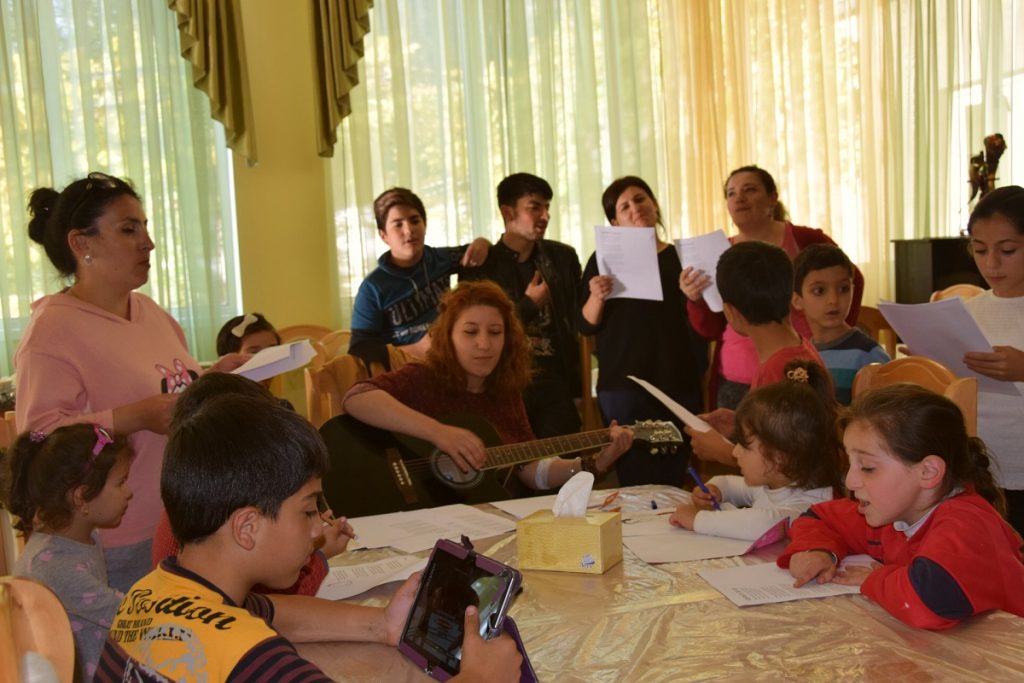Karabakh refugees in Goris, Armenia, waiting to return home after war. Photo report
Fighting in and around Karabakh has already left many without a roof over their heads.
As a result, some of them, especially women and children, were forced to move to seek shelter elsewhere.
Some families have found shelter in Goris, a city in southern Armenia, where they live with relatives or in hotels.
Photos from Goris, depicting the lives of Karabakh residents who have fled there.
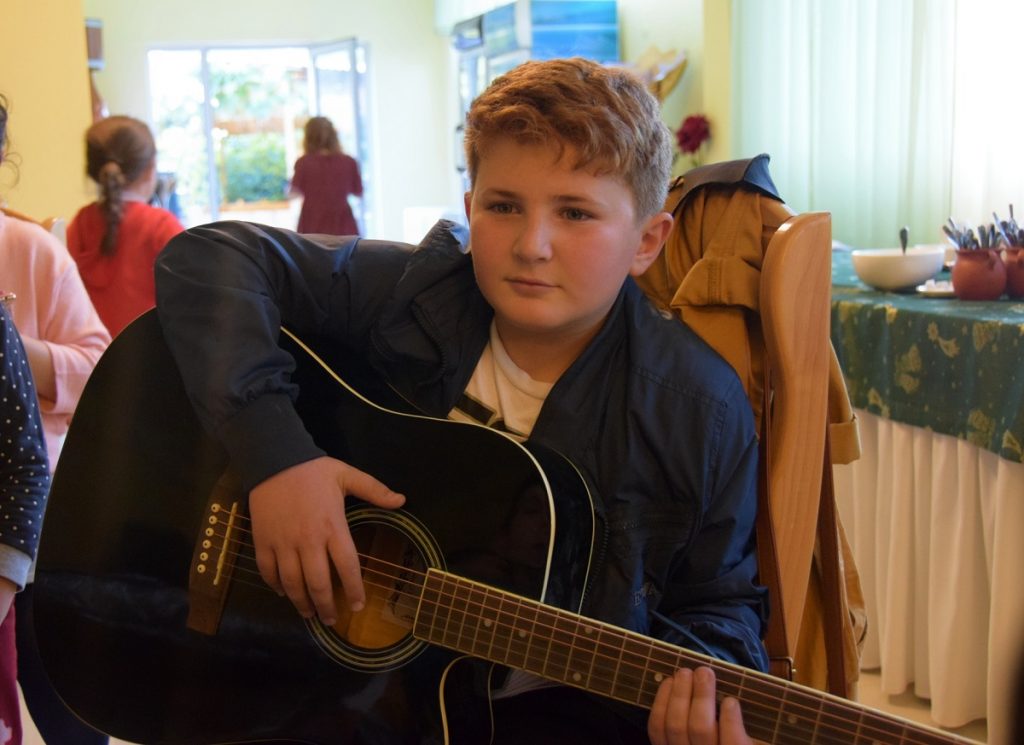
Artyom is 11 years old. He says that he moved to Goris from Martuni with his mother, grandmother, brother, and sister.
“When we left, our house was still standing, but the whole region has been bombed out now. I don’t really know what our house is like now. Grandpa is still there, but we can’t reach him. And my dad is at the border”, says the young boy.
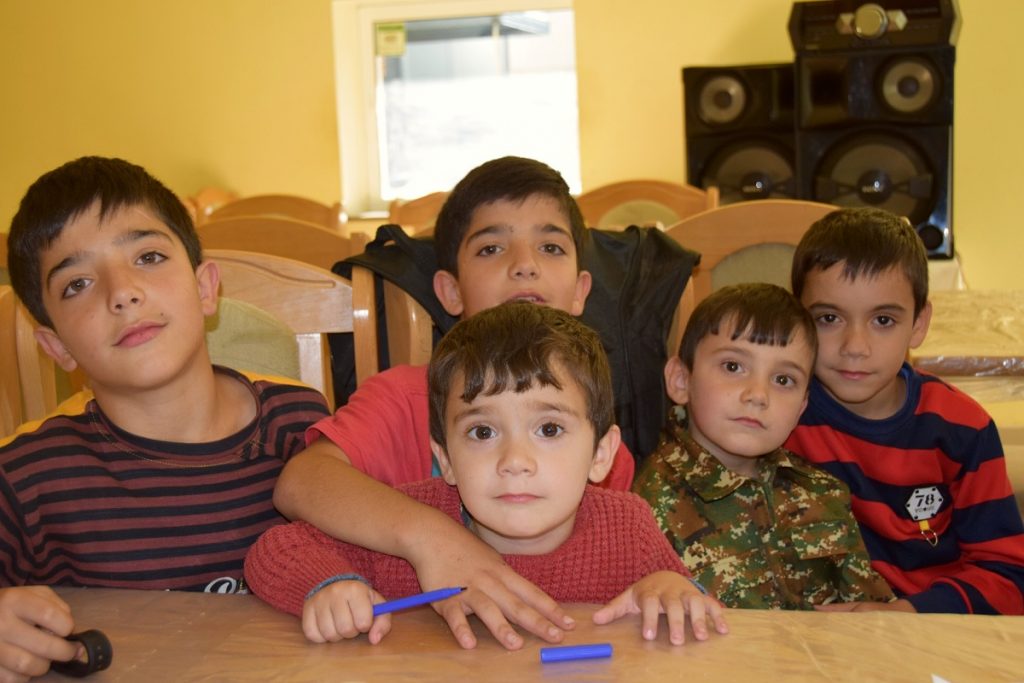
Aren, Arsen, Jivan, Levon, and Dennis are brothers who came to Goris with their mother.
“We celebrated three of my boys’ birthday on 26 September, and then the shelling started in the morning of the the 27th. First we left Stepanakert for Shusha. We were hoping everything would end soon and we would get to go home. Then they started shelling Shusha too. So we left for Berdzor, and then to Goris. My husband is at the border. He explained to the boys that the windows and doors of our house were blown out by artillery fire, and they haven’t been mended yet, so that’s why they can’t come home yet”, says Lena Gulyan, the mother of the five boys.
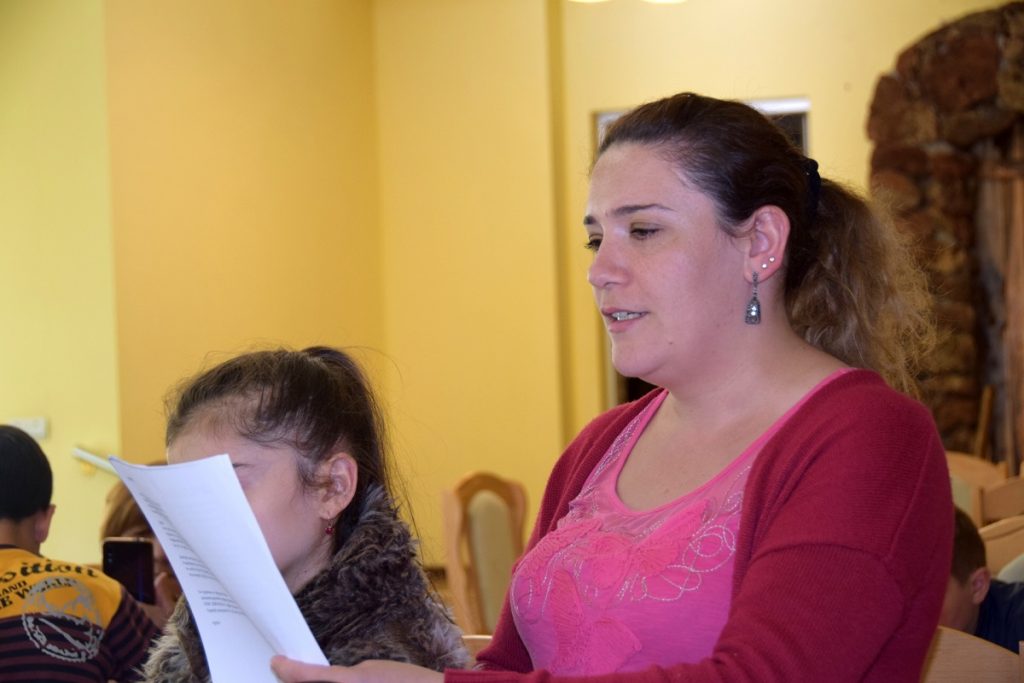
Lena is teaching her children, now living in a hotel in Goris, to sing new songs. All through the day, all the mothers get together and try to keep their children occupied, entertaining them so they can forget the recent stress they have experienced.
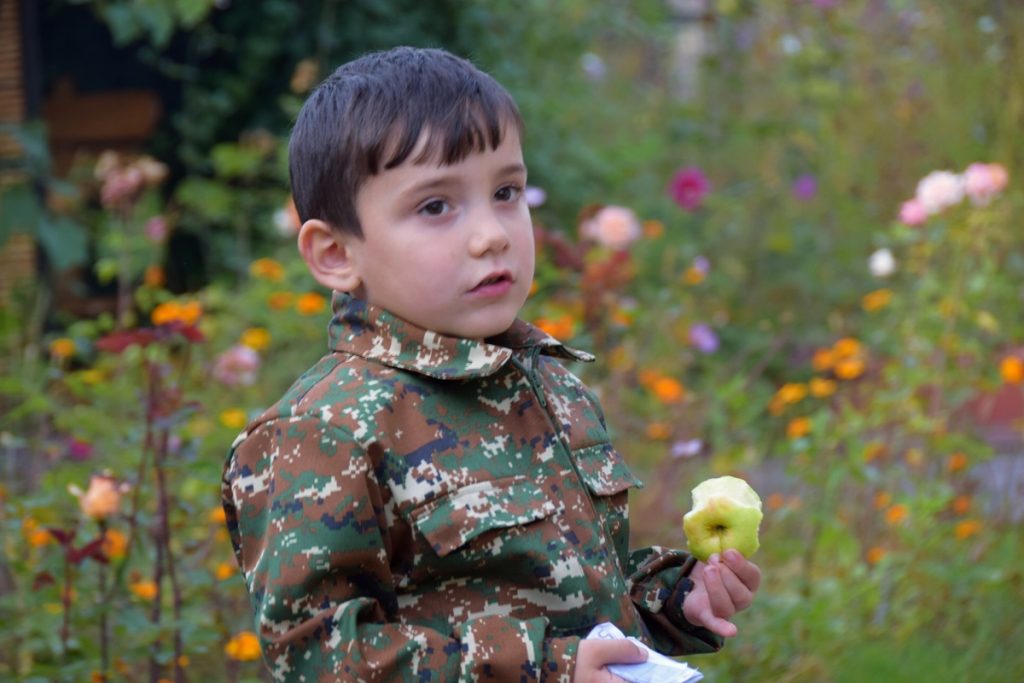
One of Lena’s sons constantly asks to be dressed in a military uniform, saying that he wants to look like his father.
“I didn’t want to tear my boys away from their homeland and their lives, but it was getting more and more dangerous to live there, and it was hard for the kids to deal with living in a bomb shelter. They kept running outside to see where the bombs had fallen. That’s why we went to Goris”, says Lena.
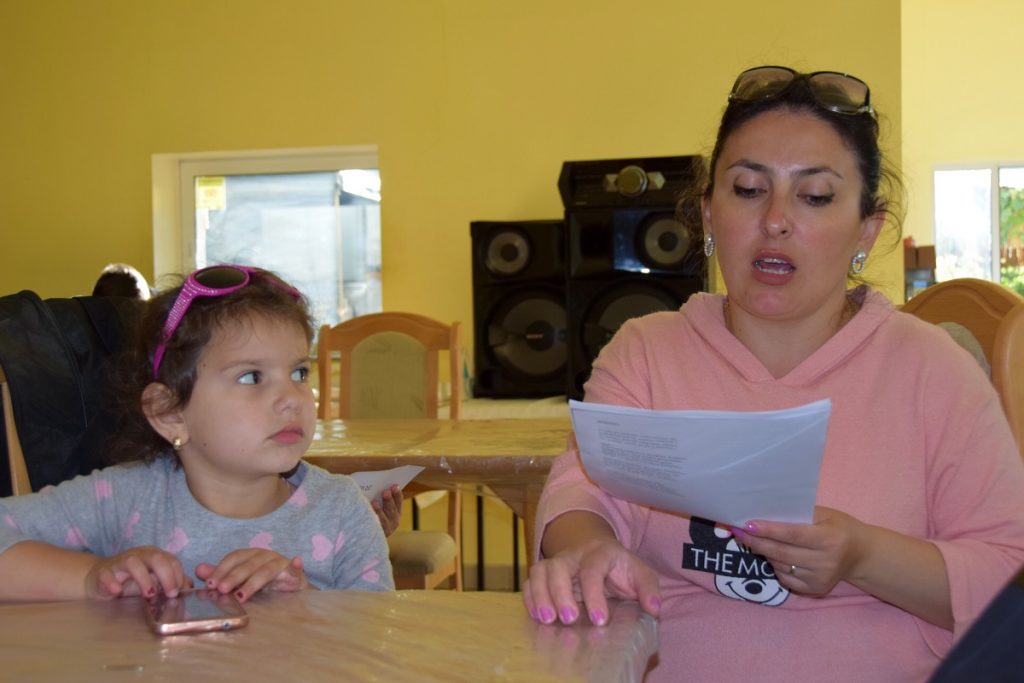
Marta Mirzoyan has come to Goris from Stepanakert with her two children. Her daughter Lia is next to her in the photo. She is often sad, saying, when asked why, that she misses her doll, Masha.
“We stayed in the city until 30 September. But then we realized that the enemy wasn’t going to stop bombing peaceful settlements. My father took us to Goris, then he went back to Stepanakert. My husband is on the frontlines. I can’t even guess when all this is going to end, when we’ll be able to go back home”, says Marta.
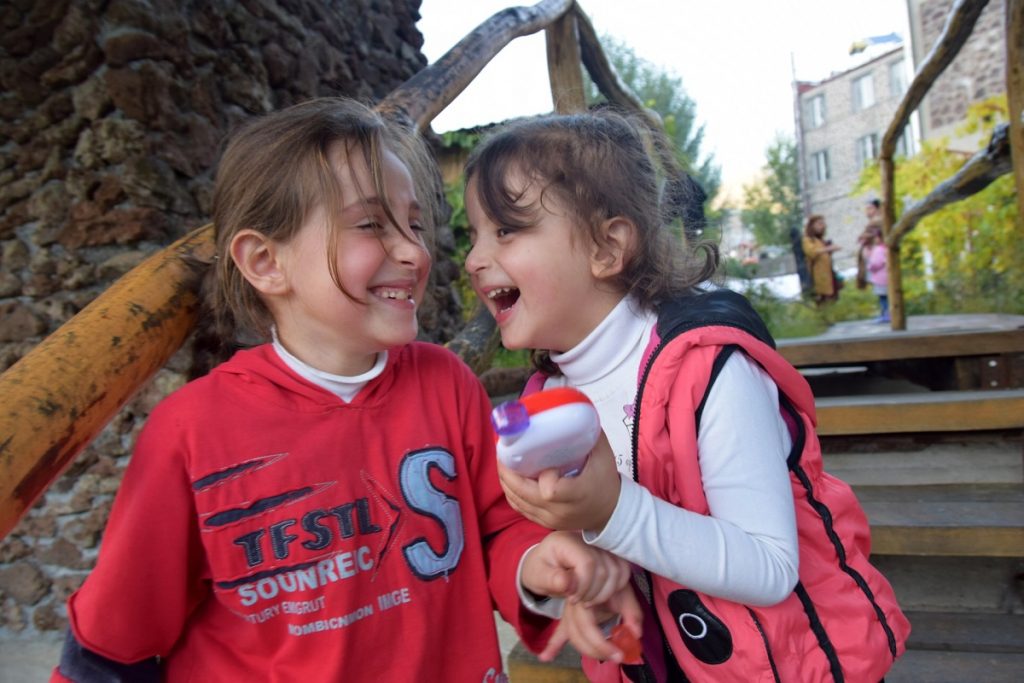
These girls from Karabakh are already at home in Goris. They are not bored at all, since they have already become friends with children their own age.
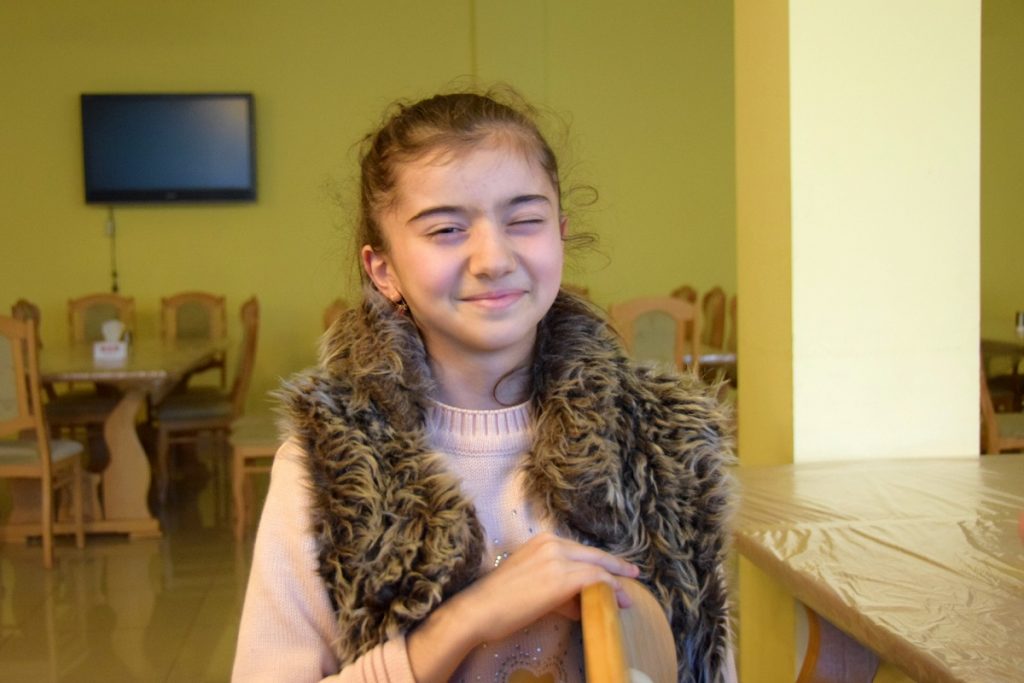
But sixth-year pupil Eva refuses to go to school in Goris. She prefers to wait until she goes home so she can attend her own school.
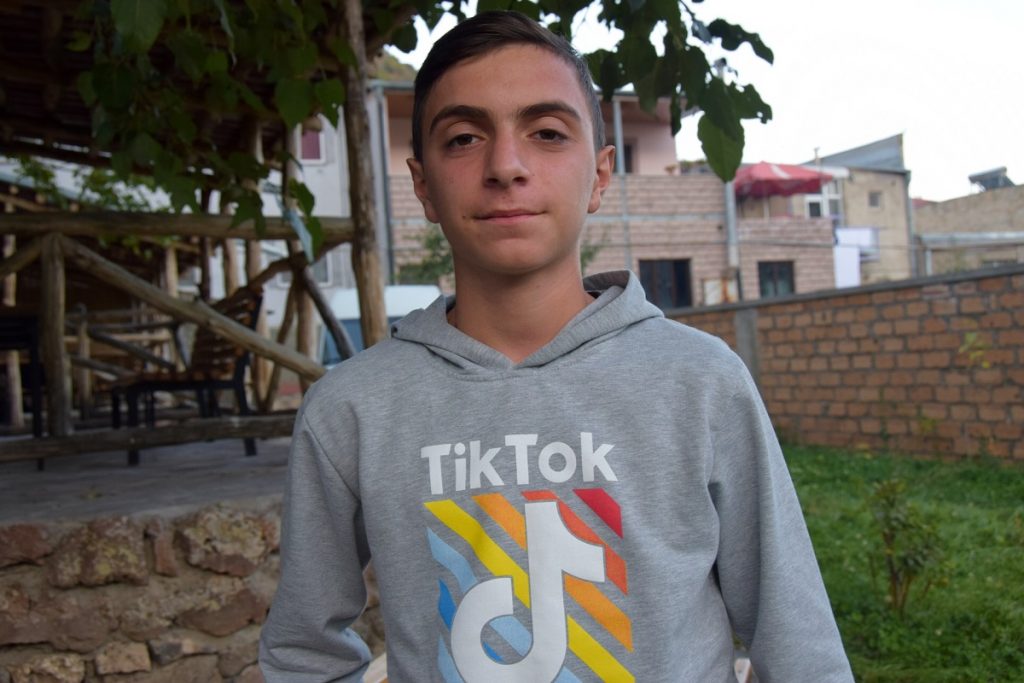
14-year-old Migran looks up from his phone just long enough to be photographed. He is constantly reading news from the front, where his father and uncle are.
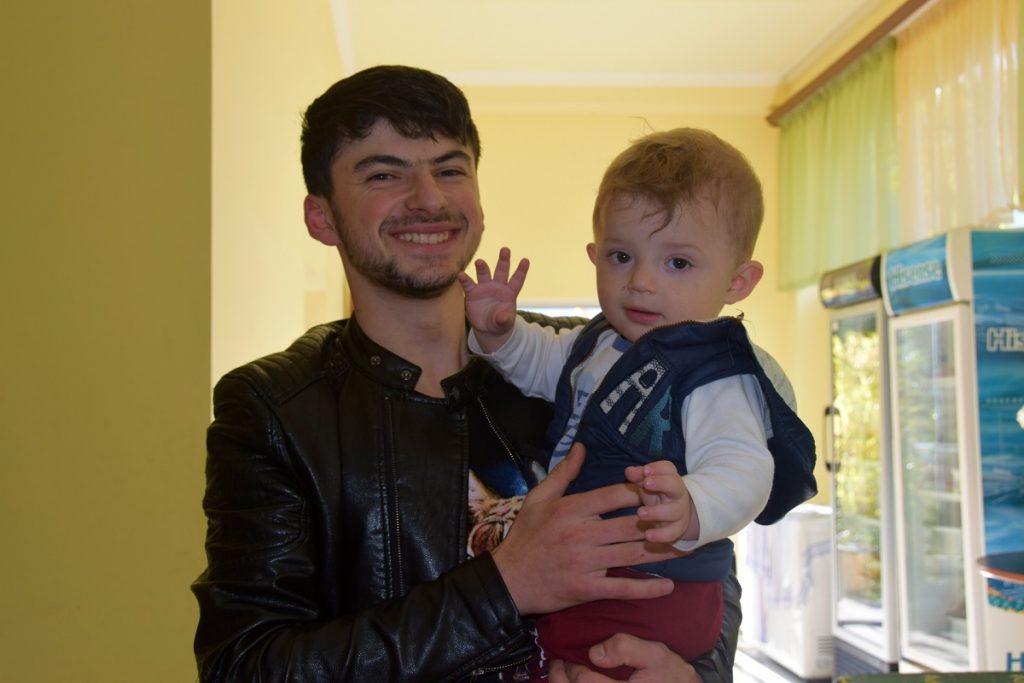
David Asryan works in a hotel, providing shelter for residents of Karabakh. He says that he has grown attached to the children, that he will have a hard time when they leave him when the war ends and they can go home.
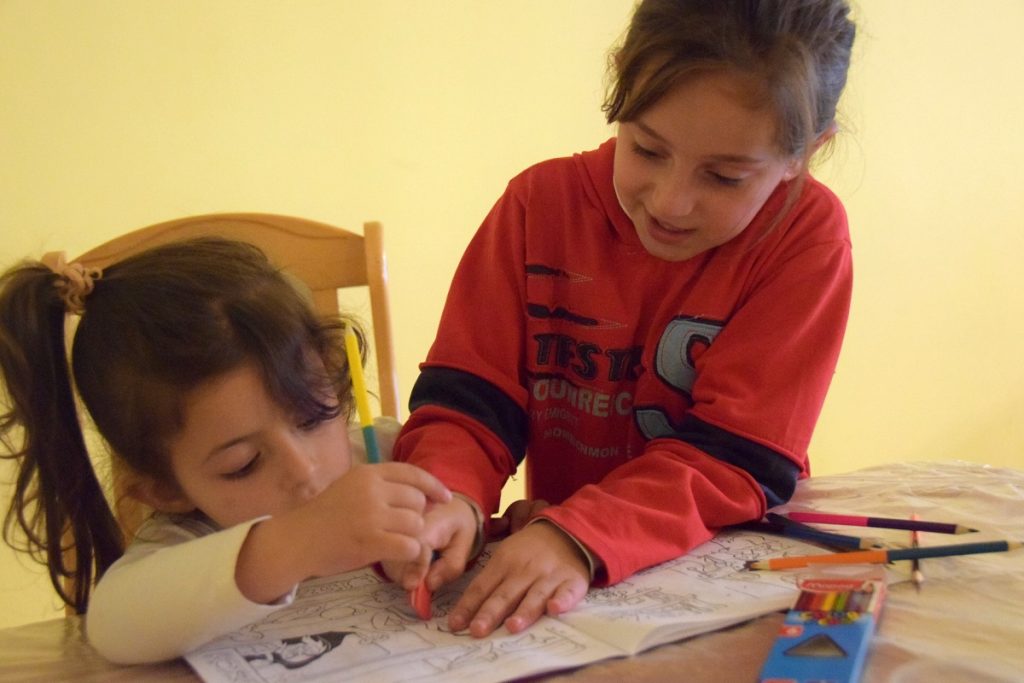
Many of the local inhabitants, especially the younger ones, visit the Karabakh residents quite often. They come to entertain the children, in whatever way they can.
“I haven’t yet managed to erase the memory of the bombings during the war in the 90s or the smell of those damp bomb shelters. When I talk to these kids, I know that this war is going to affect them just as badly.
So I try to go be with them a lot, singing, dancing, or drawing with them, to try to take them away from that harsh reality, even if just for a few hours”, says Lusine Musakhanyan from Goris.
